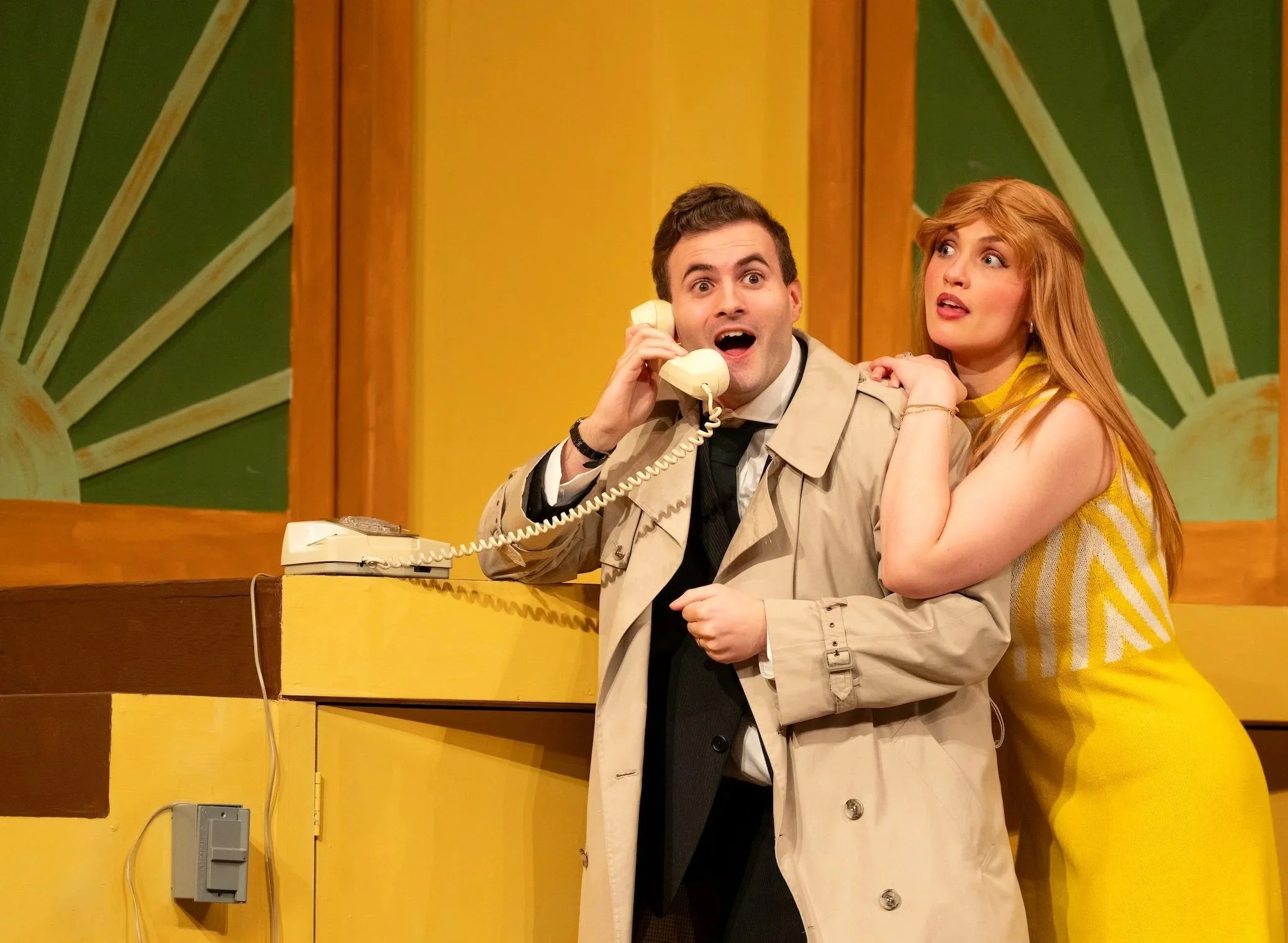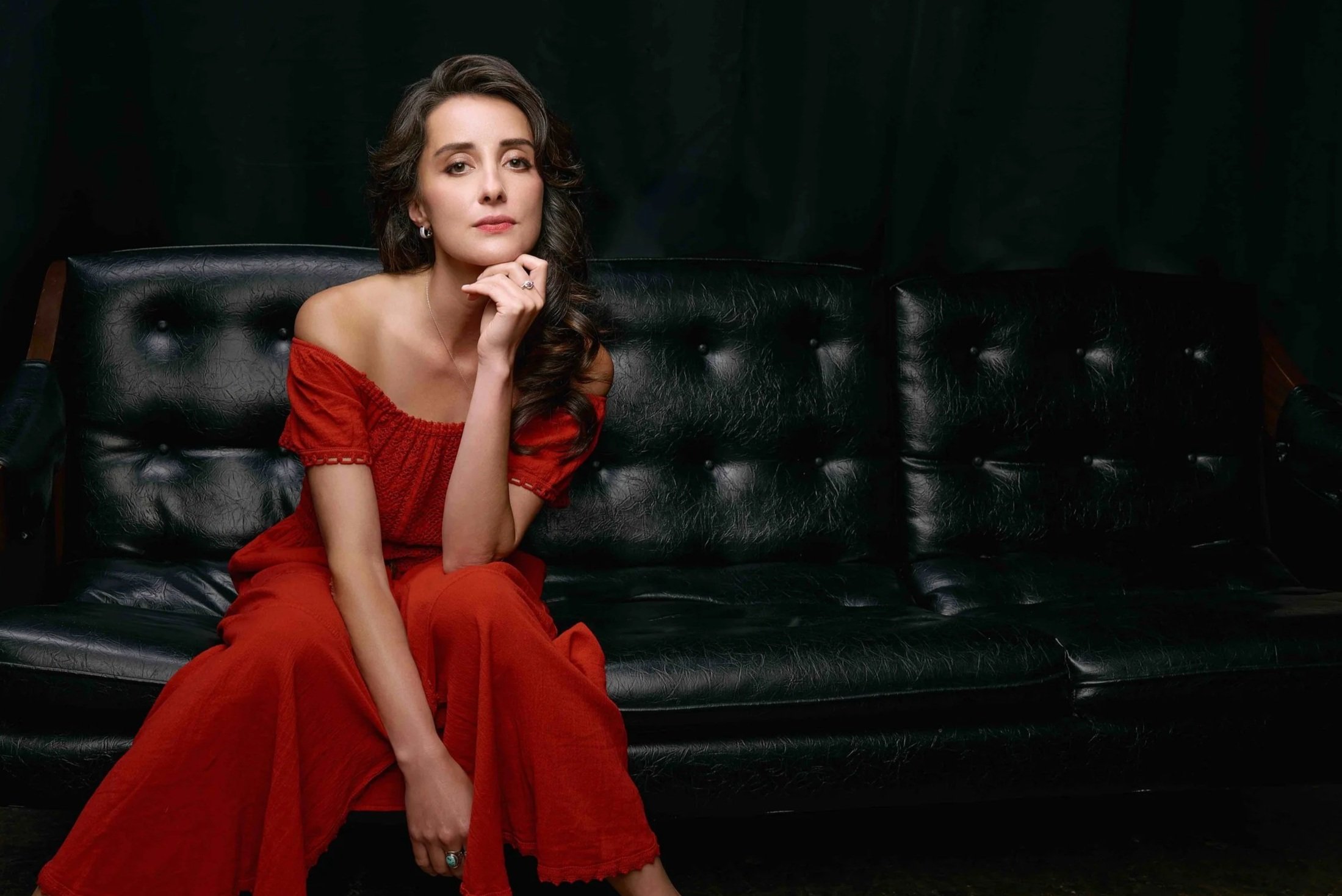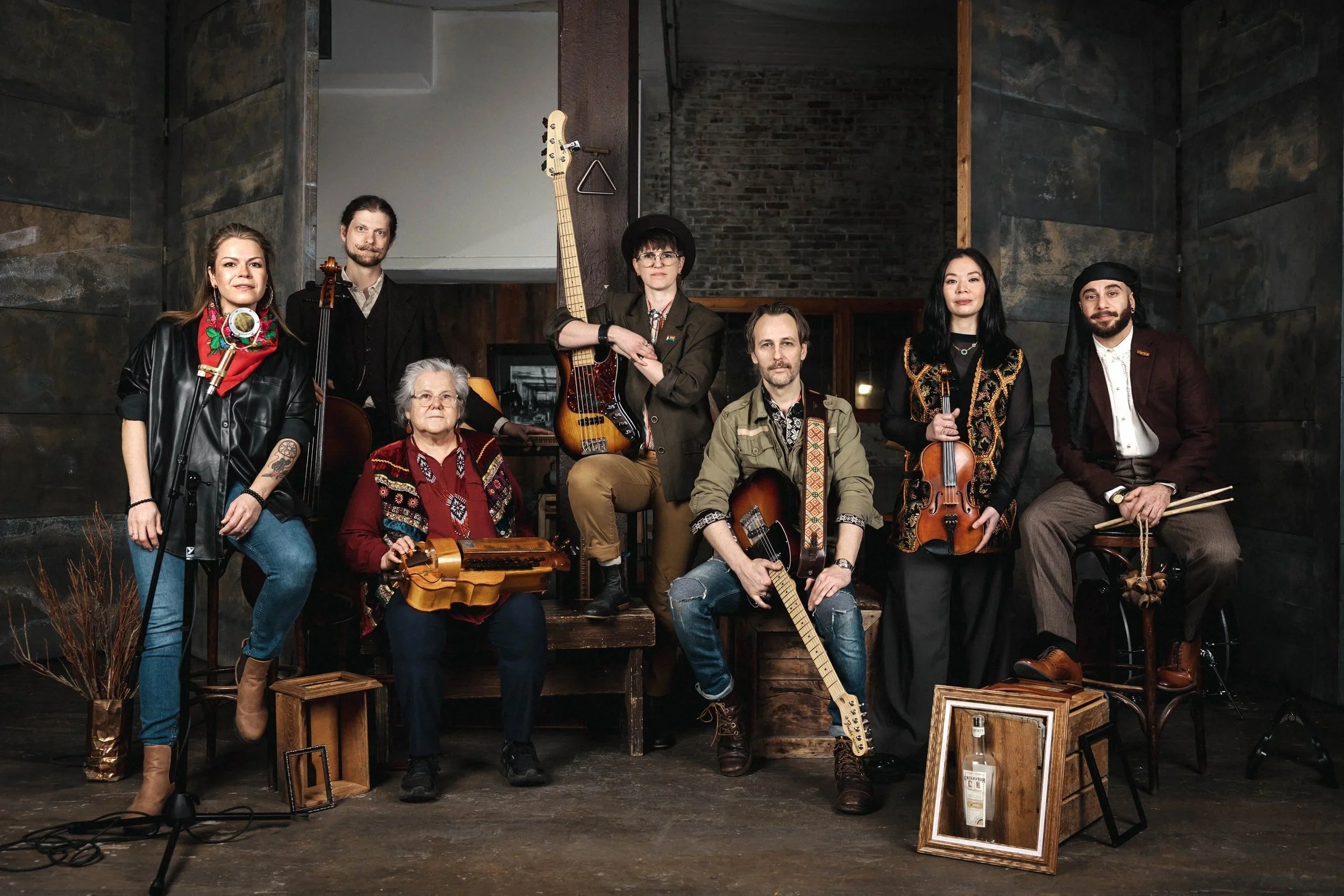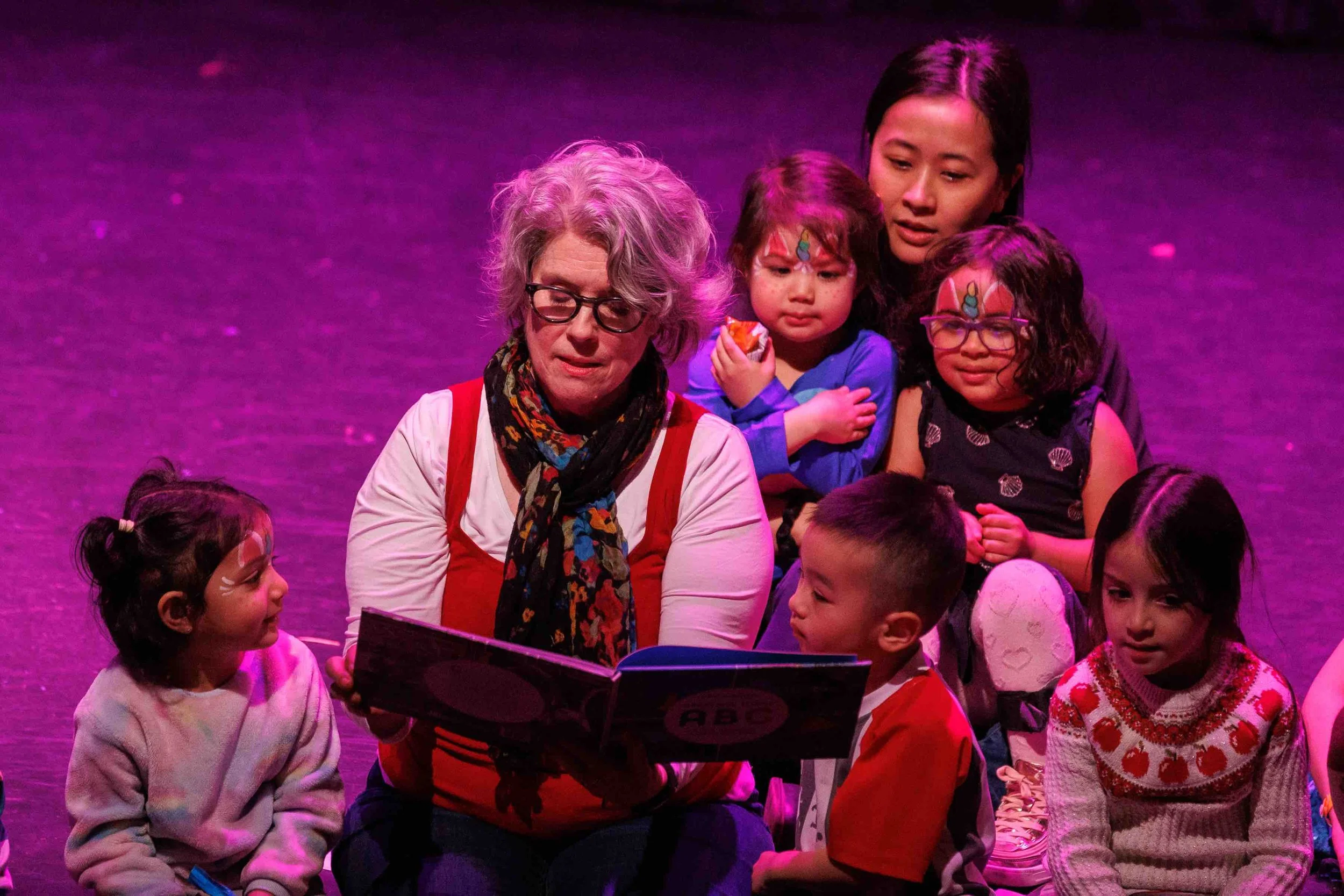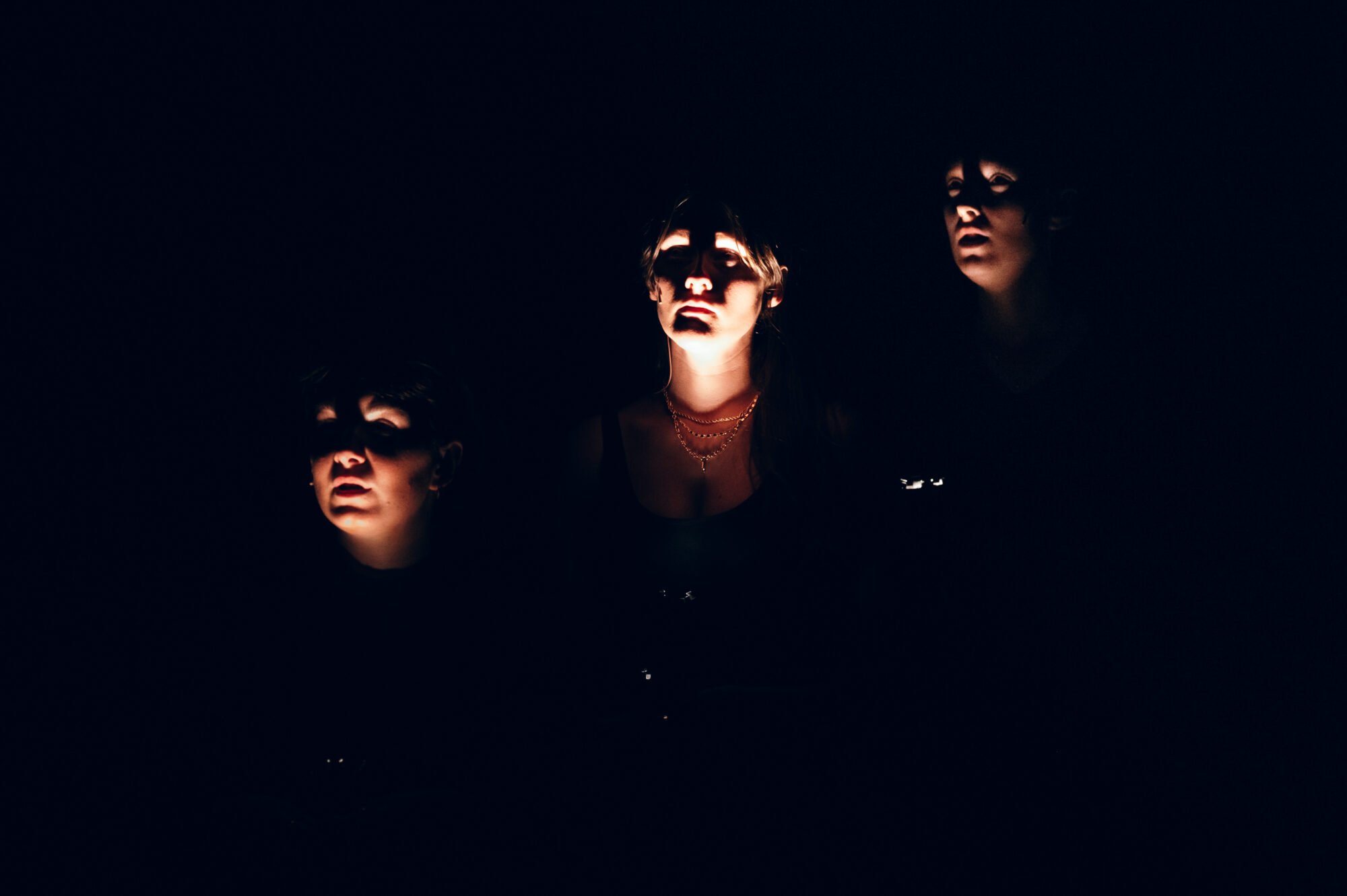Theatre review: Starwalker's showstopping songs power story of inclusion and chosen family
Strong singing and acting in musical about Indigenous teen who goes from streets to drag stage
Dillan Chiblow and Jeffrey Follis in Starwalker. Photo by David Cooper
The Cultch, Urban Ink, and Raven Theatre present Starwalker at The York Theatre until March 5
MULTITALENTED VANCOUVER theatre artist Corey Payette’s new musical Starwalker is as jampacked with big, showstopping songs as its main characters’ wardrobes are bursting with sequinned gowns.
Payette, who made his name with more serious, historical shows like Children of God and Sedna, has a way with rock-pop musical fare. In this production, he’s added to his Indigi-queer drag love story with Paris Dupree-style vogue numbers (care of choreographer Ralph Escamillan). The culture-mashing energy reaches its zenith in the Act I finale, when the ballad-belting weaves together with traditional Indigenous singing and beats. Broadway meets powwow meets land-back protest in a moment so uplifting it had the opening-night audience cheering like it was Saturday night at the Junction.
Starwalker tells the story of the title character—a lost, East Van Indigenous teen (Dillan Meighan Chiblow) who meets and falls in love with drag performer Levi (Jeffrey Follis) and follows him to the House of Borealis. There, under the care of Mother Borealis (Stewart Adam McKensy), Star finds acceptance, family, and a safe haven from the streets. They also learn to express their Two Spirit identity through the art of drag.
Directed by Payette, Starwalker is a groundbreaking musical in not just its focus on an urban Indigenous lead, but in the way it celebrates inclusivity across cultural and gender lines.
The storytelling needs some tweaking, and the production will likely continue to evolve after this world premiere. The show could spend more time developing background details for Starwalker, who was raised away from their Indigenous heritage. Star’s journey onto the drag stage happens a bit too directly, and a plot turn in Act II is foreshadowed abruptly in Act I.
Still, the almost nonstop music (under the direction of Sean Baytun) provides a heightened momentum and expression all its own. The styles range from the groovy, layered rhythms of “The Rules of Passing” to the slow-build crescendo of the heartfelt “In the Starlight” to the disco-fuelled dance number “Strut That Ass”—earworms all.
Photo by David Cooper
The performers are more than up to the singing and acting demands. Chiblow’s Star has a shy, deeply empathetic vulnerability—you can’t resist rooting for them—and rides a huge vocal range. Follis displays magnetic emotional depth and soars in some big, blowout singing. And as Mother Borealis, McKensy, a standout in the Arts Club’s Kinky Boots last year, is a pro who delivers the right balance of bitchy sarcasm and nurturing love. Crucially, the drag lives up to expectations—with the added bonus that these divas, especially Ryan Maschke, can really sing.
The cast also puts some fun sass on the humour Payette weaves generously throughout; one veteran quips the key to drag is “an intricate web of duct tape and fishing wire”.
All of this requires a plethora of outsized wigs and over-the-top, tear-away costumes on the House of Borealis stage, from a “Jizz-ney” princess parody to a winter-white snowglobe number. The designs by Alaia Hamer, as with sets by Anna Shearing, are less lavish Rupaul’s Drag Show and more DIY-fabulous, neon-lit East Van drag night, which feels right—especially in the Drive’s intimate York Theatre. One clever bit of stage business features the drag performers putting their makeup on at beauty tables whose mirrors have been removed—so they’re looking right at the audience through them. There’s also an atmospheric, rope-like cedar that leans over the lovers when they meet cruising in Stanley Park at night. (A shout-out to the troupe of drag queens who have to roll around set pieces—beds, wardrobes, and more—all while wearing size-12 platform heels.)
Beyond the glitz, Starwalker asserts the importance of “chosen family” and the integral need to define ourselves—Two Spirit or otherwise—with drag as a kind of uprising. As Payette’s exhilarating, hook-y “God in Drag, You’re Beautiful” number puts it: “This is a defiance of, it’s a rejection of, the rules our bodies made for us.” A few structural improvements aside, audiences can really get swept up in the ideas behind this ambitious new show, with the soaring music turbocharging the trip to the House of Borealis.







